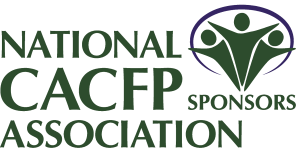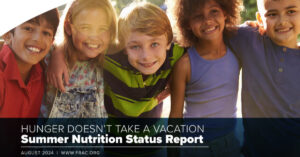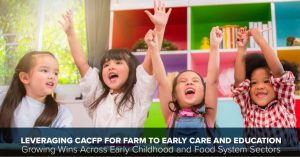Research
Hunger Doesn’t Take A Vacation: Summer Nutrition Status Report 2024
FRAC’s latest report, Hunger Doesn’t Take a Vacation: Summer Nutrition Status Report 2024, reveals a drop in the number of children receiving nutrition over the summer following the loss of pandemic-era waivers.
Read MoreECE Nutrition and Physical Activity Practices Decreased During Pandemic
A report published in the Journal of Public Health Management & Practice examined changes in nutrition and physical activity-related best practices in ECE settings in Illinois from 2019 as compared to 2022.
Read MoreCACFP Family Day Care Home Participation Study
The “USDA Child and Adult Care Food Program (CACFP) Family Day Care Home Participation Study” focuses on current and former CACFP participants among FDCH providers. These providers serve a critical need within the child care system, frequently offering longer hours of care (often at a lower cost) than other types of providers to children in their own communities and neighborhoods. This study is the first national study to ask former providers why they left. The study spans 2019–2023, which coincides with the COVID-19 public health emergency, so it provides a unique look at FDCHs during that time.
Read MoreCACFP Participation Among U.S. Childcare Providers
The “USDA Child and Adult Care Food Program Participation Among U.S. Childcare Providers” examines the characteristics of childcare centers and day care home providers by whether they participated in CACFP or not.
Read MoreHealthy Tots Helps Address Food Insecurity in D.C.
Across the nation, racial inequities have impacted access to federal nutrition programs for people of color. The report by D.C. Hunger Solutions aims to address how racial inequities contribute to hunger and poverty among residents of color in the District of Columbia and to lack of access to federal nutrition programs.
Read MoreLeveraging CACFP for Farm to ECE
When combined, the CACFP and Farm to Early Care Education (Farm to ECE) activities can have an extraordinary impact on children, child care providers, and local communities. FRAC’s report aims to support child care providers to access CACFP and utilize it for eligible Farm to ECE activities by highlighting the mutually beneficial synergy between these initiatives.
Read MoreCACFP Indicator for State-Level Obesity Prevention
The CACFP is an indicator for state-level obesity prevention. The inclusion of the CACFP as an indicator for obesity-prevention shows that the CACFP is an important, recognized factor for proper development in the earliest stages of life.
Read MoreCACFP Important Factor for Obesity Prevention
The University of Colorado College of Nursing published their 2022 Annual Report on Achieving a State of Healthy Weight. The report determines how state regulations support obesity prevention in licensed ECE programs. It also highlights state successes and identifies opportunities for ECE regulations to improve support of obesity prevention in young children.
Read MoreState Agency Perspectives on Administering the CACFP
A study was published in October 2023 by the UConn Rudd Center for Food Policy and Health to explore federal and state policies and practices that support or discourage CACFP participation among child care centers. The report approaches: program outreach and administration, barriers that make CACFP participation challenging, and recommendations to expand access to CACFP for eligible providers.
Read MoreUntapped Potential: License-Exempt Home-Based Child care Providers
A study was published in October 2023 by the Urban Institute to identify major gaps in the CACFP’s coverage and ability to reach children. The study specifically focused on CACFP eligibility for small home-based child care providers who are legally exempt from their state’s child care licensing requirements.
Read More









